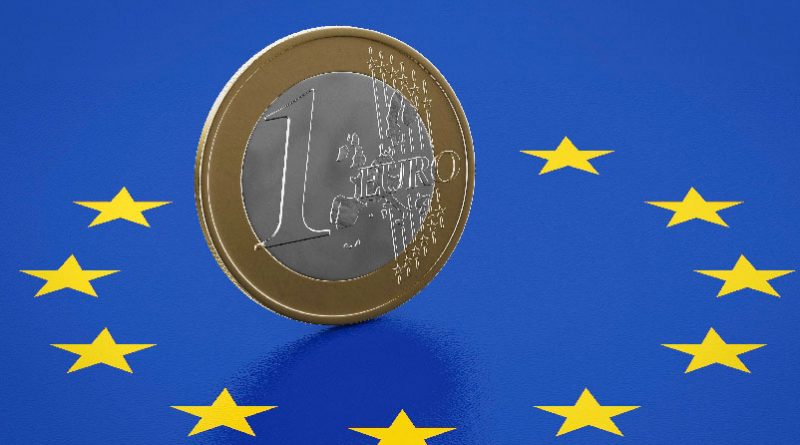2017: Euro Tunnel-Vision?
“The euro”, said Germany’s Angela Merkel, “is our common fate, and Europe is our common future.” While those remarks were made amid the turbulence of the Eurozone debt crisis, they still seem relevant more than six years on. Following last year’s Brexit earthquake, the European project will be visited by a series of (at a minimum) tremors in 2017 – elections in France, Germany and the Netherlands, along with the next instalment of the Greek debt saga and challenging negotiations over the terms of Britain’s EU divorce. How these play out may have far-reaching consequences.
With approximately half of all Irish exports going to the UK and continental Europe (and around 70% to countries outside of the Eurozone), firms here are far from disinterested observers where the above events are concerned. A further complicating factor is that the betting odds and opinion polls previously beloved of election watchers are now seen as debased currencies, so where market participants might have previously considered the outcome of an event to be a foregone conclusion, now they are likely to be more nervous about how things play out until after the votes have been counted.
Indeed, while we don’t see it happening, further departures from the European project cannot be entirely ruled out, given the poll ratings of some Eurosceptic elements on the continent. While it is hard to isolate the extent to which the market is pricing in this risk, if perceptions of their electoral prospects change, then this will have implications for the euro. The prognosis, therefore, is for greater volatility, particularly in the FX market, which will put a lot of strain on Irish exporters.
The first threat that the single currency faces is Dutch elections in March. At the time of writing, opinion polls suggest that Geert Wilders’ PVV is on course to become the Netherlands’ largest party. Its policy platform includes plans to leave the EU as quickly as possible. The average of the three most recent polls suggest that it will win 28 seats (out of 150), giving it a narrow lead over the centre-right VVD party, but well adrift of being able to form an administration (VVD has ruled out governing with Mr. Wilders’ party). Assuming VVD sticks to its word, then it is difficult to see a government being formed that includes the PVV. While this will be perceived as positive for the euro, markets will be watching to see if former UCC student Jeroen Dijsselbloem – better known as President of the Eurogroup of Eurozone finance ministers – retains his Cabinet seat. Should he fail to do so, then this could serve as one added complication in the ongoing Greek talks.
Once the dust has settled on the Dutch election, attention will then shift to the first round of voting in France’s Presidential election. The campaign has thrown up all sorts of upsets, from allegations of ‘Fake News’ to Francois Fillon’s unlikely win in the Republican primary over Messrs Sarkozy and Juppé. Against the backdrop of a crowded field, Marine Le Pen seems likely to top the poll in the first round – she has secured the highest vote in 49 of the last 50 opinion polls. However, with all of those polls putting the leader of the Front National under 30%, all will be to play for in the second round of voting in May.

Polls suggest that the Eurosceptic Le Pen will be beaten by either Fillon or the centrist candidate Emmanuel Macron in the second round of voting, but as we have seen in both the US and UK in the past year, surveys cannot be taken as gospel. However, even in the event that Le Pen becomes President, her party is very unlikely to secure the majorities in both the Senate and National Assembly needed to amend the constitution – and France’s EU membership is enshrined by Article 88-1 of that document. So even though a Le Pen win could put the single currency (along with other assets exposed to France) under the cosh in the short term, over time a wider appreciation of the constitutional backstops could limit the selling pressure.
Even if the Eurosceptics’ ambitions are thwarted by the Dutch and French electorates, hopes for a quiet summer may be ruined if policy discussions between Greece and its creditors run to the wire, delaying the release of further distributions to the Hellenic Republic ahead of €6bn of debt repayments in July. Reflecting investor alarm about the prospects of a deal, the yield on a benchmark Greek Government bond maturing in July surged to 13.2% in early February, before moderating to a still very high 9.5% at the time of writing after Mr. Dijsselbloem signalled that he was “very happy” with the progress of the latest round of talks with Greece. If this optimism proves misplaced, it will have negative read-through for the single currency.
Elsewhere, Germany is due to hold Federal elections in September in which Chancellor Merkel faces challenges from both the left and right. With the CDU/CSU bloc and SPD polling in the 60-65% range, it seems that another grand coalition is the likeliest outcome, given the lack of viable alternatives for Germany’s largest parties. At least this is one election that is unlikely to provoke market jitters.
Arguably the most pressing issue facing Europe’s politicians this year does not involve the ballot box but rather the negotiating table. Theresa May’s administration is likely to find the discussions around the terms of Brexit to be more complex than what was presented by those who campaigned for it. Perceptions of whether the ultimate deal is likely to be benign or harsh for the UK will likely lead to heightened volatility in the euro-sterling exchange rate – a key currency pair for Irish businesses.
Speaking of matters domestic, our narrative for Ireland is one of domestic-led growth, which is serving to shield the economy from external pressures. Specifically, we draw considerable comfort from the outlook for consumer spending – which is underpinned by strong labour market dynamics and rising disposable incomes (along with the ‘wealth effect’ from the upturn in household net worth) – and also underlying investment (within that, the improving trends in construction output and business investment that we have previously noted remain intact). While 2017 is likely to see some political changes here (at the time of writing it seemed that Enda Kenny’s tenure as Taoiseach was drawing to a close), they are likely to be of the cosmetic variety rather than something more comprehensive, given that most Irish politicians hug the middle ground.
Of course, a key focus for the readers of this publication is the prospects for the construction industry. Last year saw a further uptick in activity, but output is still abnormally low – the 14,932 residential units completed in 2016 compares to an annual average of 31,374 since records began in 1970. For the total industry, the latest (Q3 2016) CSO data show that the volume of construction output is 65% below peak levels and 42% below the level at the start of the millennium. Another way of looking at the industry is that total sector employment, at 139,000 in Q4 2016, is half of peak levels.
Our forecast is for housing output to increase to 16,000 units in 2017 and to 18,000 next year and while these increases are welcome they imply that new supply will continue to lag below the most commonly cited estimate of new household formation (25,000 units per annum). Elsewhere, the multi-speed recovery in the commercial property sector remains intact, with strong activity evident in the office market and selective developments underway in the retail and industrial segments. Civil engineering is, however, likely to take longer to recover, in part due to the financial shackles imposed by the European Union’s fiscal rules. So, while the Irish construction sector remains in growth mode, activity levels look like they are continuing to track below normal.
Stepping back, from a wider European standpoint the picture for the rest of 2017 is one of political uncertainty that will overshadow economic fundamentals. As firms here discovered after the Brexit referendum, unexpected outcomes can lead to violent moves in the markets. Companies here must consider strategies that can help to protect their business model against such adverse outcomes – such as hedging or rethinking supply chains and/or target markets.

